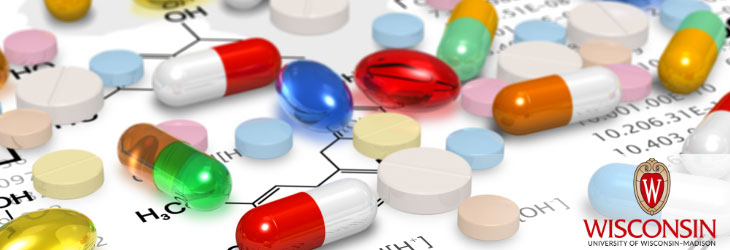Therapeutics & Vaccines

MUCOADHESIVE PROBIOTIC BACKPACKS WITH ROS NANO-SCAVENGERS ENHANCE THE BACTERIOTHERAPY FOR INFLAMMATORY BOWEL DISEASES
WARF: P220262WO01
Inventors: Quanyin Hu, Jun Liu
The Invention
UW-Madison researchers have developed a novel platform that can selectively and sustainably scavenge ROS in inflamed colon tissues while also improving probiotic delivery for gut microbiota homeostasis modulation.
The researchers synthesized a hyaluronic acid-poly (propylene sulfide) (HA-PPS) conjugate and self-assembled an HA-PPS nanoparticle (HPN) based on the combined amphiphilic properties. HA was selected because it is biocompatible and has proven effective in addressing IBDs by modulating the immune response and serving as a potent anti-inflammatory agent. The new HPN exhibits improved hydrophilicity and cytoprotective effects while maintaining the robust ROS-scavenging activity of PPS. Further, the HPN self-degrades once all of the ROS species are consumed, which opens the door for potential clinical applications.
To achieve colon tissue targeting effects, the HPN nanoparticles were conjugated on the surface of E. coli Nissle 1917 (EcN), a well-known probiotic strain that can colonize colon tissues. Oral probiotic delivery was further enhanced via encapsulation with norepinephrine (NE), which can be auto-oxidized to form a protective film on the probiotic surface. Further, the catecholamine group of NE imparts a robust mucosa adhesive property on the probiotics, resulting in extended retention time in the intestines.
For current licensing status, please contact Rafael Diaz at [javascript protected email address] or 608-960-9847
The researchers synthesized a hyaluronic acid-poly (propylene sulfide) (HA-PPS) conjugate and self-assembled an HA-PPS nanoparticle (HPN) based on the combined amphiphilic properties. HA was selected because it is biocompatible and has proven effective in addressing IBDs by modulating the immune response and serving as a potent anti-inflammatory agent. The new HPN exhibits improved hydrophilicity and cytoprotective effects while maintaining the robust ROS-scavenging activity of PPS. Further, the HPN self-degrades once all of the ROS species are consumed, which opens the door for potential clinical applications.
To achieve colon tissue targeting effects, the HPN nanoparticles were conjugated on the surface of E. coli Nissle 1917 (EcN), a well-known probiotic strain that can colonize colon tissues. Oral probiotic delivery was further enhanced via encapsulation with norepinephrine (NE), which can be auto-oxidized to form a protective film on the probiotic surface. Further, the catecholamine group of NE imparts a robust mucosa adhesive property on the probiotics, resulting in extended retention time in the intestines.